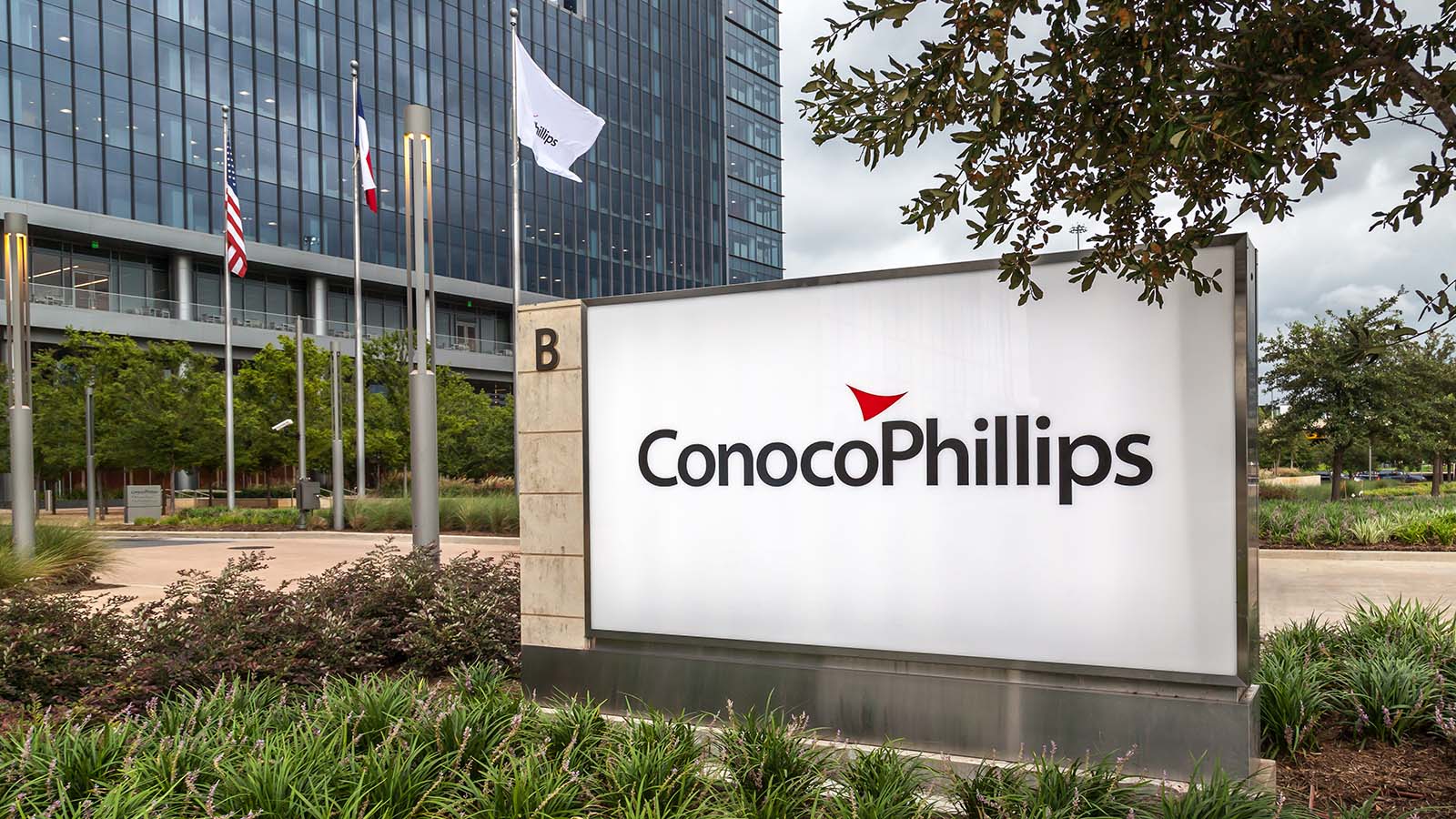ConocoPhillips (NYSE:COP) stock is down over 64% from its highs in the last year, and 63% or so from its January 2020 peak. As it stands, I believe COP stock may not have yet touched the bottom.

Source: JHVEPhoto / Shutterstock.com
Oil prices may keep falling. This will hurt all oil stocks, including COP. The market has not yet priced in a recession and the follow-on lack of demand for energy that entails.
However, I also highly suspect that COP stock could be near the bottom. For one, the dividend yield is very attractive. The company’s annual dividend is $1.68 per share. At today’s price of $26, the dividend yield is 6.5% ($1.68 dividend by $26 per share).
Moreover, COP is not likely to cut that dividend anytime soon. For example, as of Dec. 31, 2019, ConocoPhillips produced $4.5 billion in free cash flow over the year. The $1.68 per share dividend only cost COP $1.5 billion.
So you can do the math. Oil prices are down over 50% since then. That implies that COP’s free cash flow could end up being only $2 billion or so over the coming year, should energy prices stay low. But this is still much higher than the dividend cost of $1.5 billion.
A Dividend Cut Is Not Likely for COP Stock
In addition, during the Great Recession, COP did not cut its dividend. It kept the payout steady and continued to slowly increase it. This was despite the fact that oil prices slid to levels similar to today.
However, ConocoPhillips did cut its annualized dividend rate in 2016 from $2.96 per share to just $1 per share. So, it is not completely impossible that COP could do this today
But keep in mind also that most companies are loath to cut their dividends. They would rather borrow money to pay the dividend before cutting it.
Moreover, on March 18, COP said it would cut its capital expenditures by 10%, or $700 million. In addition, ConocoPhillips is going to reduce its share repurchases. The new quarterly rate of buybacks will be $250 million, down from $750 million.
The company says its capital and share repurchase actions will save $2.2 billion in cash. This will have a limited impact on its production capacity.
ConocoPhillips Has Plenty of Liquidity
During its conference call with analysts, ConocoPhillips stressed that it has a number of advantages over other oil stocks. For one, it ended 2019 with over $14 billion in liquidity.
Second, ConocoPhillips has a diversified portfolio of low-cost oil and gas resources. It also has a low base decline rate and a low capital intensity rate.
Lastly, the company is reviewing its operating expenses and looking to cut those further. Look for an update on these cuts during its next quarterly earnings call.
A potential dividend cut was not once discussed during the conference call. If the company was even thinking of this, it would have had an obligation to indicate that it was an option on the table. But ConocoPhillips didn’t.
What Should Investors Do With COP Stock?
One very famous value investor, Sam Zell, who is the chairman of Equity Group Investments, told CNBC on March 5 that he was starting to buy energy stocks.
That might be a signal for like-minded investors to begin nibbling on COP stock as well. This is especially true given the very high dividend yield.
In other words, you are going to be well paid to wait for COP stock to rise once oil prices start to recover.
As of this writing, Mark Hake, CFA does not hold a position in any of the aforementioned securities. Mark Hake runs the Total Yield Value Guide which you can review here. The Guide focuses on high total yield value stocks.
